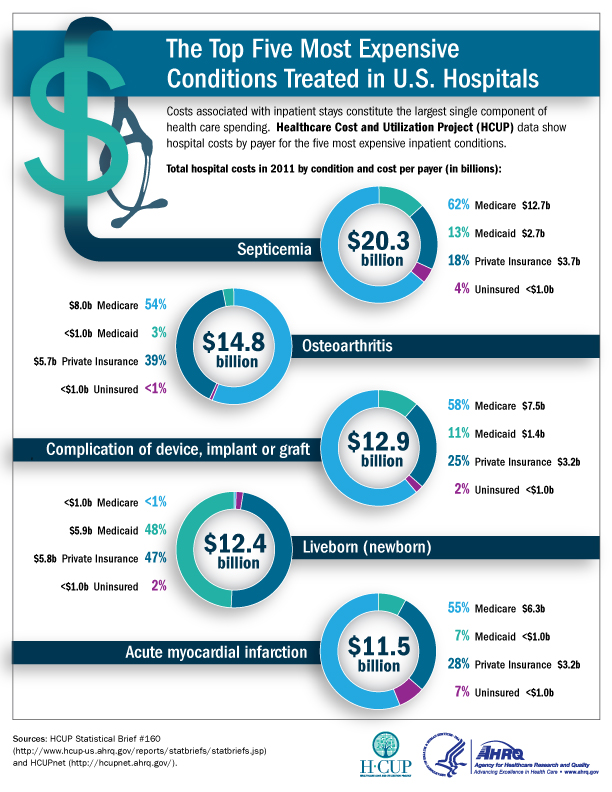According to AHRQ, the 39 million inpatient hospital stays in 2011 cost an aggregate $387 billion.
According to AHRQ, the 39 million inpatient hospital stays in 2011 cost an aggregate $387 billion.
- Medicare and Medicaid shared 63% ($242.3 billion)
- Medicare was the primary payer for roughly 15.3 million inpatient stays, totaling $182.7 billion
- Medicaid was billed for an estimated 7.6 million hospital stays ($60.2 billion).
- Uninsured accounted for 2.1 million inpatient stays, accounting for 4.4% ($17.1 billion) of total aggregate hospital
- Private insurance was billed for 12.2 million inpatient stays, incurring approximately 29.0% ($112.5 billion) of total aggregate hospital costs in 2011.
The quality of care a patient receives during a hospital stay can contribute to the cost of care and the adverse events or complications that occur during a patient’s stay. In addition, some of the conditions highlighted in the infographic are potentially disproportionately more expensive if a patient receives care in a poor quality setting relative to a high quality setting.
Two of the top 5 conditions – osteoarthritis and AMI (heart attack) – are the result of chronic conditions that develop over time. Preventing unnecessary hospitalizations associated with these two conditions are important in containing rising health care costs. Early detection and proactive care (often with lifestyle modification and targeted medical treatment) can significantly reduce these costs. Engaging patients and their family caregivers with tools to help them better manage their condition can also help reduce overall costs.










